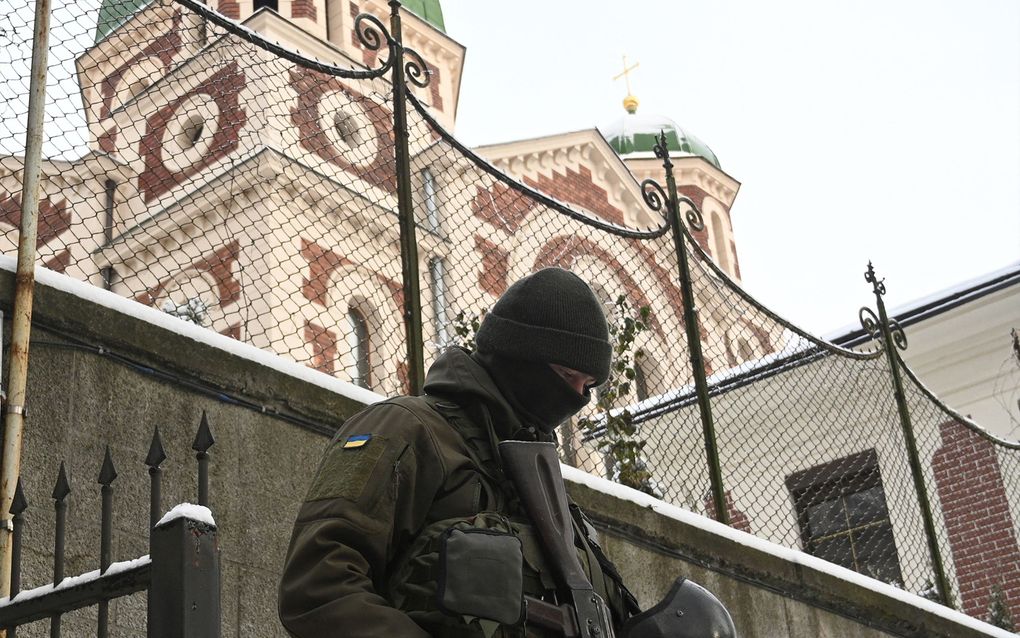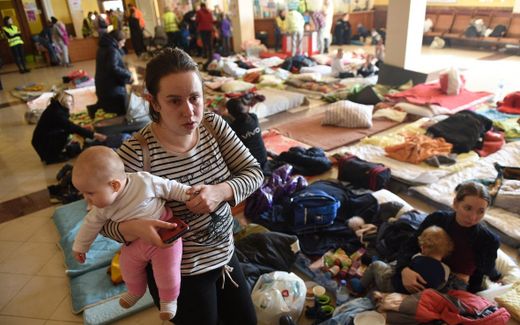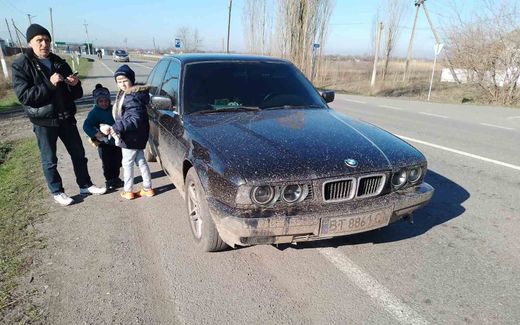Weekly column from Ukraine: Is the Moscow-connected church a friend or an enemy?

Photo AFP, Yuriy Dyachyshyn
Christian Life
In the last few weeks, the situation around the Ukrainian Orthodox Church (Moscow Patriarchate, UOC-MP) has become rather tense and complicated. This church's open support of the ideology of Russia as an aggressor country led to a flurry of social discontent. This, in turn, resulted in a direct confrontation between the Security Service of Ukraine (SBU) and the UOC-MP.
There are three important concepts behind UOC-MP ideology. Firstly, after the fall of Constantinople in 1453, Moscow applied to itself the long Byzantine tradition, according to which church and state live harmoniously together in a 'symphony' of church and state under a universal leader.

He received both a Masters from the ERSU and the Reformed Theological University in Kampen, the Netherlands.
Apart from theology, he likes motorcycles.
However, this idea was radically transformed by Peter the Great (1672-1725), who had a tremendous influence on the history of the Russian Church, including Orthodox churches in the Ukrainian territory. The concept of 'harmony' of church and state was bartered for the idea of a 'state church'. That concept was in line with the ideas of the Enlightenment: the state is responsible for the religious and spiritual well-being of the people. It gives the church the task of taking care of that in a way that fits into the general state policy.
Kremlin
Secondly, In the post-Soviet period, UOC-MP remained closely connected to the Russian Orthodox Church (ROC). In turn, ROC remained closely connected with and dependent on the Kremlin administration.
An essential concept of the 'canonical jurisdiction' has appeared in this unity of ROC/UOC-MP and the Kremlin government. It plays an especially important role in Russia.
According to this idea, the Autonomous and Self-governing Churches, Exarchates, Metropolitan areas, metropolis, dioceses, vicariates, Synodal institutions, deaneries, parishes, monasteries, brotherhoods, sisterhoods, theological educational institutions, missions, representations and other 'canonical units', which constitute the Russian Orthodox Church, canonically comprise the Moscow Patriarchate. The head of this church, patriarch Kirill, has the title of the Patriarch of Russia and All Rus. The latter includes all Orthodox Churches on the territory of the former Soviet Union.
Such a concept of the ROC implies that even after Ukraine gained its independence in 1991, Moscow still had a significant influence on its territory through the UOC-MP churches, which are subordinated to the ROC. In fact, the UOC-MP was the only religious entity officially adopted by Moscow at the beginning of Ukrainian independence and until now.
Russian world
Thirdly, ROC and UOC-MP are closely tied to 'The Russian World' concept. 'The Russian world' is a cultural-historical idea of an international, interstate and intercontinental community united by involvement in Russia (Rus') and adherence to the Russian language and culture. It was increasingly adopted by the Russian Orthodox Church since the late 1990s.
Thus, the idea of a 'state church' idea, the Kremlin's concept of a 'Russian world' doctrine and ROC/UOC-MP's views on ‘canonical jurisdiction' together explain the ideological direction of the UOC-MP towards Moscow since the collapse of the Soviet Union in 1991. It seems that Ukrainian Orthodox Christianity has received its long-awaited independence this year. However, there are still more than 12,000 parishes of the UOC-MP on Ukrainian territory. They are under political and religious pressure now and still comprise a part of the ROC's 'canonical jurisdiction'. And Russia sees their protection as its holy duty.
Current situation
The UOC-MP now finds itself in a difficult situation. Onuphry, the head of UOC-MP since 2014, is continuously performing a balancing act between the pro-Ukrainian and pro-Russian factions within his own church. A fair number of parishes are located in occupied areas by the Russians.
Being faithful to the ROC, he turned to a neutral-pacifistic polemic based on the information that there is a civil war in Eastern Ukraine. He keeps asserting that the Christians of the UOC-MP on the Ukrainian side are patriots who love their fatherland, Ukraine. But their main goal in this conflict is to do everything possible to stop the fraternal war against their fellow Christians of the same Moscow Patriarchate in the occupied territories.
Obviously, such a middle position became rather annoying for Ukrainian society, which wants to name things as they are, i.e. Russia is the aggressor who started and continues the war in Ukraine. Due to such balancing of the UOC-MP, large parts of the Ukrainian population treat UOC believers as 'traitors'. Also, many Ukrainian clerics of the Moscow Patriarchate held pro-Ukrainian positions themselves and voluntarily joined the recently created the Orthodox Church of Ukraine (OCU).
According to the all-Ukrainian nationally representative Omnibus poll from April 2022, the share of Ukrainians who considered themselves members of the UOC in February 2022 decreased from 15 per cent in February to 4 per cent in March. That shows that the UOC-MP lost 73 per cent of its members. In contrast, the share of the OCU parishioners increased from 38 per cent to 52 per cent.
Glorifying Russia
A few weeks ago, a new wave of conflict appeared when one of the visitors of Kyiv Pechersk Lavra (the central place of UOC-MP in Ukraine) filmed on his smartphone how parishioners and members of the UOC-MP sang the song glorifying Russia during the liturgy.
This caused a broad resonance in Ukrainian society. The Security Service of Ukraine initiated a series of raids and inspections of several UOC-MP churches and monasteries. During these inspections, many pieces of pro-Russian propaganda literature and targeted funds supposed to support the occupiers were discovered. Many "clerics" were detained on suspicion of collaboration with the aggressor country.
A few days later, the Draft Law of Ukraine, "On Ensuring the Strengthening of National Security in the Field of Freedom of Conscience and Activities of Religious Organisations", appeared on the government portal (reg. No. 8221 dated November 23, 2022). The purpose of the draft law is to "determine the specifics of the activities of foreign religious organisations on the territory of Ukraine to prevent threats to the national security of Ukraine and ensure order in the sphere of freedom of conscience and activities of religious organisations, in particular by banning the activities of certain religious organisations."
In parallel with this, on December 2, 2022, President of Ukraine Volodymyr Zelensky imposed sanctions against the governor of Kyiv-Pechersk Lavra Pavel. On the same day, December 2, 2022, the Kyiv-Pechersk Lavra was legally registered as a monastery as part of the (new) OCU. This means that soon the abbey, as a legal entity, can receive property for use - temples and premises.
Real identity
UOC-MP has existed on Ukrainian territory since 1685-86. During these more than three hundred years, Russian ideology was so deeply rooted within Ukrainian society that there was no legal possibility to banish it.
Only after the beginning of the war on February 24, 2022, the UOC-MP clearly showed its real identity. Thus, it seems that there is no place for this political-religious entity within Ukrainian society any longer.
Related Articles






